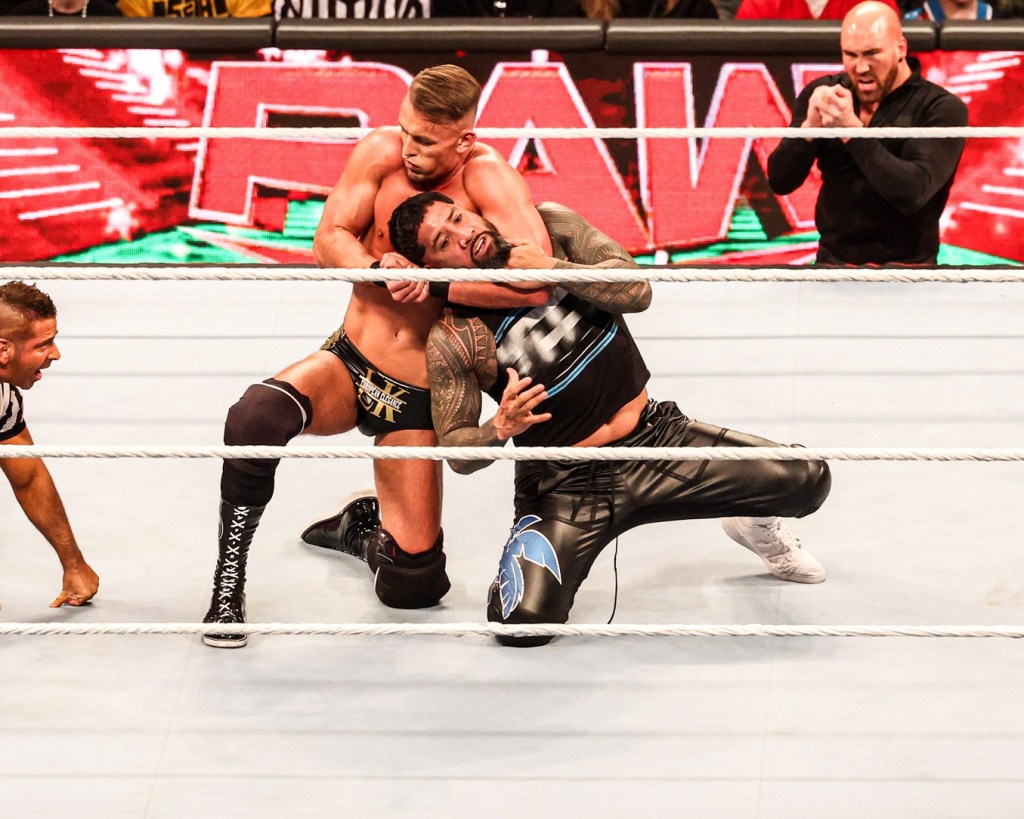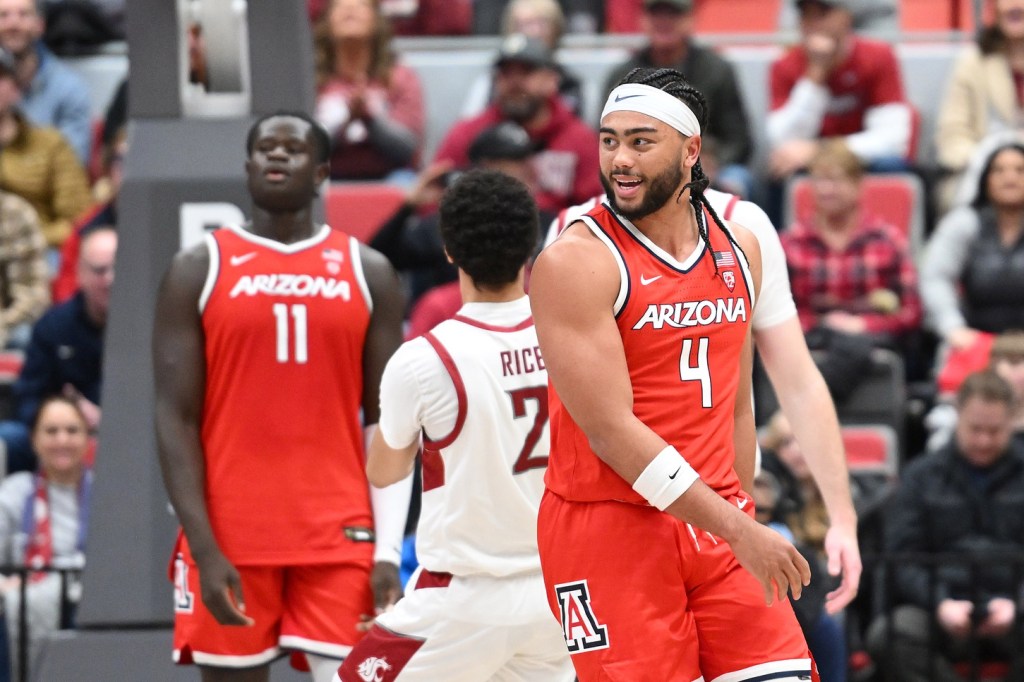Netflix’s first major move into live sports is happening with likely the most natural and favorable set of circumstances for the dominant streaming platform.
On Tuesday, the company completed a 10-year deal with WWE to stream its flagship weekly show, Raw, beginning in January 2025, and building massively upon Netflix’s modest steps in live sports to date, such as the in-house golf tournament The Netflix Cup and the similar tennis tournament The Netflix Slam. Valued at more than $5 billion, the WWE-Netflix agreement will not only see the streamer show Raw in the U.S. but also pick up international rights for other major WWE properties, such as SmackDown, WrestleMania, SummerSlam, and Royal Rumble. A behind-the-scenes WWE documentary airing on Netflix is also being discussed.
Closely following Netflix’s announcement of a NASCAR documentary project, the WWE agreement includes a Netflix option to extend for a second decade, as well as an opt-out option after the initial five years. Raw will exit its longtime home at the NBCUniversal-owned USA Network, where it has enjoyed a status as the cable network’s top show and frequently attracts 1.5 million to 2 million viewers per episode.
Investors quickly cheered the agreement, as stock in TKO, parent of both WWE and UFC, soared nearly 16% Tuesday, and shares of TKO majority owner Endeavor increased more than 3%. Netflix shares were comparatively flat, rising just 1% Tuesday, but financial analysts still applauded the move and how it helps expand the company’s advertising business to supplement core subscriptions.
“We think Netflix’s No. 1 focus is driving scale in ads as it needs reach and frequency to carve out a seat at the top table with U.S. ad buyers,” said Wells Fargo analyst Steven Cahall.
Seamless Switch
Prior to today’s deal, Netflix had been largely satisfied making its name in sports around documentary programming, with company co-CEO Ted Sarandos famously saying in 2022, “we’re not anti-sports, we’re just pro-profit.” That comment seemed to reinforce Netflix’s long-held belief that escalating sports rights fees existed outside of the company’s business plan.
The $5 billion-plus commitment to WWE obviously denotes a very different thinking. But from a programming standpoint, the WWE live rights are not at all a radical departure for Netflix. The pro-wrestling promotion is scripted and serialized—elements core to its other entertainment content. To that end, Netflix chief content officer Bela Bajaria called Raw “the best of sports entertainment, blending great characters and storytelling with live action 52 weeks a year.”
WWE will continue to handle production for Raw and the other events, as it has been doing in its existing rights deals. That frees Netflix from the burden of producing events in sometimes challenging conditions, such as extreme weather, a responsibility carried by most other linear networks and streamers.
“Raw is year-round, which is part of what makes it such an attractive property,” Tom Richardson, Mercury Intermedia senior vice president and a longtime influential voice in digital sports media, tells Front Office Sports. “It delivers a ton of content.”
Seeing the Future
The Netflix agreement also marks a clear statement by WWE and TKO about where they see the media business going. USA Network is currently in more than 72 million U.S. homes. But that number is dropping, having already fallen 20% between 2018 and 2023, and it will continue to do so—likely at accelerating rates—as cord-cutting extends its attack on the traditional cable television business.
Netflix, conversely, has more than 260 million global subscribers, tops of any streaming network, and that number is still growing. That large and expanding audience helps explain why there has been so much interest in Netflix’s sports aspirations, even as it previously balked at paying large-scale rights fees.
If successful, Netflix’s WWE move will also raise further questions about whether the company will make a move for rights for the WWE Network, WrestleMania, and other top events, currently held in the U.S. by NBCUniversal’s Peacock, but expiring in 2026.
“I respect any property that’s experimenting. WWE is definitely doing that, and has been for some time with their premium live events, whether it be their pay-per-views, going to Peacock, and now this,” Richardson says.
I Am a Rock
TKO, meanwhile, has made a separate deal with Dwayne “The Rock” Johnson to add the entertainment icon and former WWE personality to its board of directors. One of Hollywood’s most bankable film stars, a senior figure with the reworked UFL spring football league, an active entrepreneur, and one of the most-followed personalities globally on social media, Johnson will regain full legal ownership of “The Rock” name, which had been held by WWE.
The pact will also see Johnson enter into an additional services and merchandising agreement with the company in which WWE will license Johnson’s name, likeness, and other intellectual property for up to 10 years. Johnson, who appeared with TKO CEO Ari Emanuel on CNBC Tuesday to herald the new relationship, will be paid $30 million in TKO stock, vesting in four batches between now and the end of 2025.
“My crazy life is coming full circle,” Johnson said.







